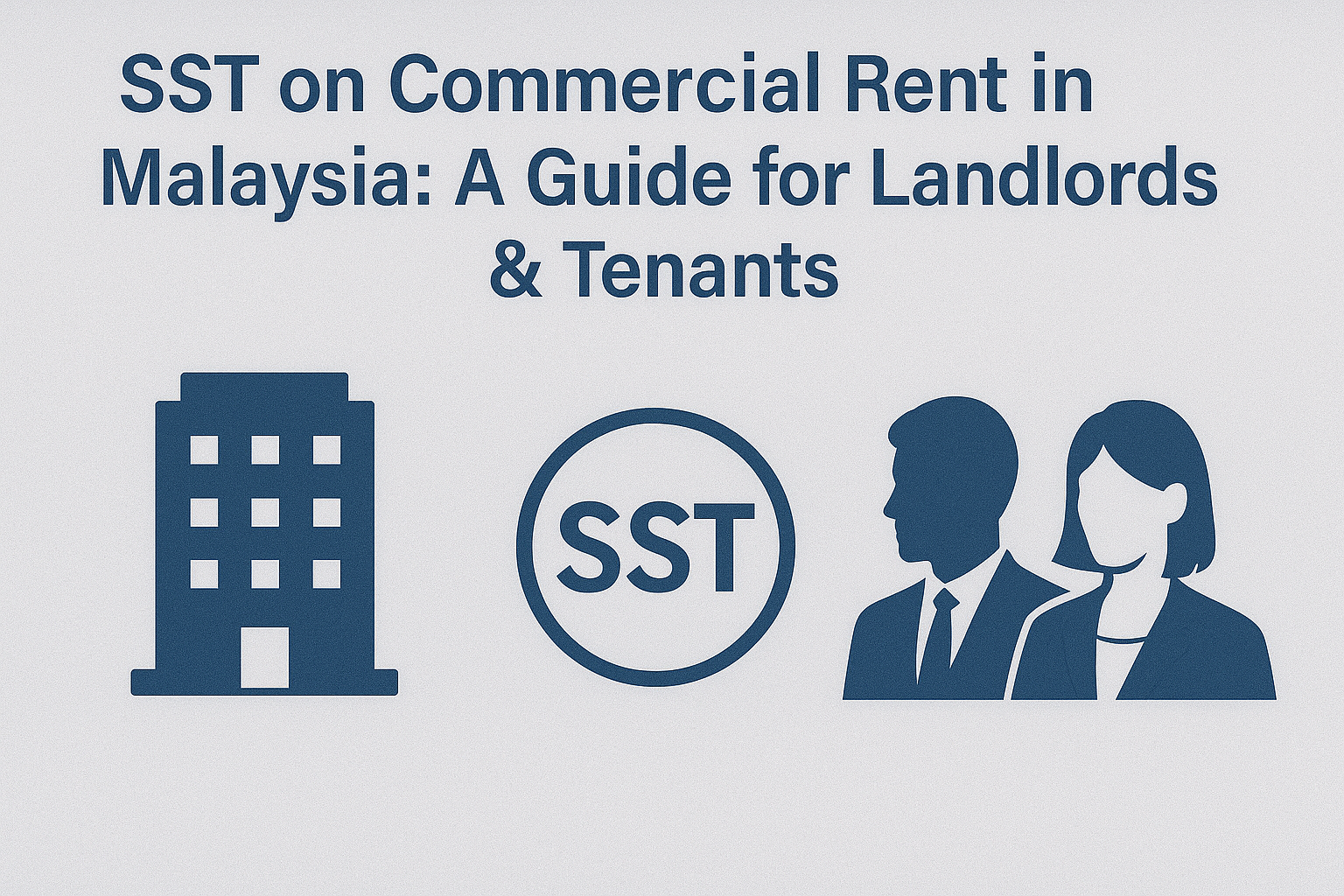Since the service tax rate was adjusted to 8%, one of the most talked-about topics among Malaysian business owners has been its application to commercial property rentals. Are you a landlord unsure if you need to charge Service Tax (SST)? Or are you a tenant wondering if the 8% charge on your rent is correct?
This guide, based on information from professional advisors and recent regulations, will clarify the key rules: who needs to charge, who needs to pay, and most importantly, who might be exempt.
1. Who Needs to Charge and Pay SST on Rent?
Let’s break down the fundamental rules.
- Who should charge SST? (The Landlord) A landlord is required to register for SST and charge their tenants an 8% service tax if their total taxable income, including commercial rental income, exceeds a threshold of RM500,000 over a 12-month period.
- What type of rental is affected? (The Tenant) The 8% service tax applies to the rental of any commercial property. This includes, but is not limited to, shops, warehouses, and office spaces. The rule also extends to other rentals, such as event spaces, and even the rental of equipment like printers or vehicles.
2. Understanding the Exemptions: Can You Avoid the 8% Tax?
Yes, under specific conditions, this service tax can be exempted. Here are the three main avenues for exemption:
A) The B2B Exemption (Business-to-Business)
This is the most significant exemption for most businesses. The “B2B exemption” allows a business to be exempted from paying the 8% SST on their rent.
How it works: If you are a tenant registered for SST and you are renting a commercial space from a landlord who is also SST-registered, you can apply for this exemption. The key condition is that you are using the rented space to provide your own taxable services. For example, a registered accounting firm renting an office can be exempted from paying the 8% SST on their rent.
B) The Small Enterprise Exemption
As mentioned above, the requirement to charge SST is tied to a
RM500,000 annual income threshold. This means if your landlord is a micro or small enterprise whose total taxable income is less than RM500,000 per year, they are not required to register for SST and therefore cannot charge you the 8% service tax.
C) Transitional Relief for Non-Reviewable Contracts
For certain tenancy agreements that were finalized before the SST implementation and are considered “non-reviewable” (meaning the terms and price cannot be changed), there was a one-year exemption period available. This was primarily a transitional measure, and most new tenancy agreements will not fall under this category.
Navigating Your Rental and Tax Obligations
The rules surrounding SST on rental income require careful attention from both landlords and tenants. For landlords, failing to register and charge SST when required can lead to significant penalties. For tenants, understanding the B2B exemption can lead to significant cost savings.
Properly structuring your tenancy agreements and managing your SST filings is crucial. If you are unsure whether these rules apply to you, or how to apply for the B2B exemption, SMONE is here to help. We provide expert advisory to ensure your business remains fully compliant and as tax-efficient as possible.
Contact us today for a professional consultation.
(Disclaimer: This article is for general informational purposes. It does not constitute legal or tax advice. Please consult with a qualified professional for advice tailored to your specific situation.)


